Start reading on any device today!
(Ebook) Harry Potter and the Half-Blood Prince by J. K. Rowling
https://ebooknice.com/product/harry-potter-and-the-half-blood-prince-51195100
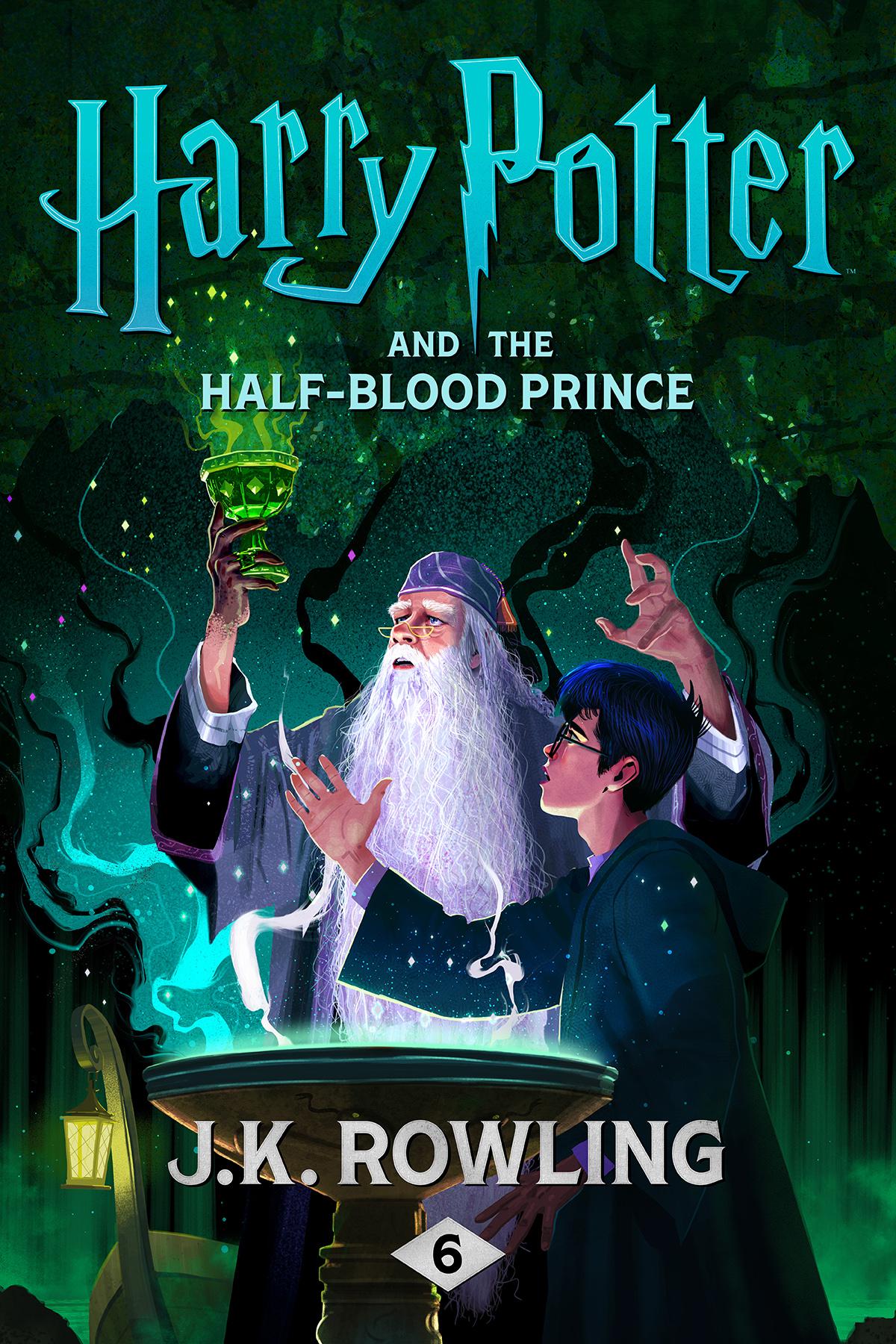
ebooknice.com
(Ebook) Harry Potter and the Half-Blood Prince-Enhanced Edition by J.K. Rowling ISBN 9781781105894, 1781105898
https://ebooknice.com/product/harry-potter-and-the-half-blood-prince-enhancededition-35487748
ebooknice.com
(Ebook) Harry Potter and the Philosopher's Stone by J. K. Rowling
https://ebooknice.com/product/harry-potter-and-the-philosopher-s-stone-51193942
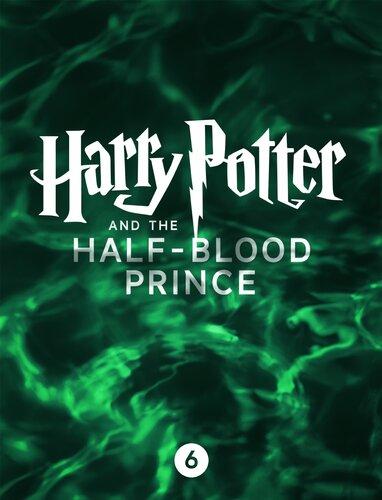
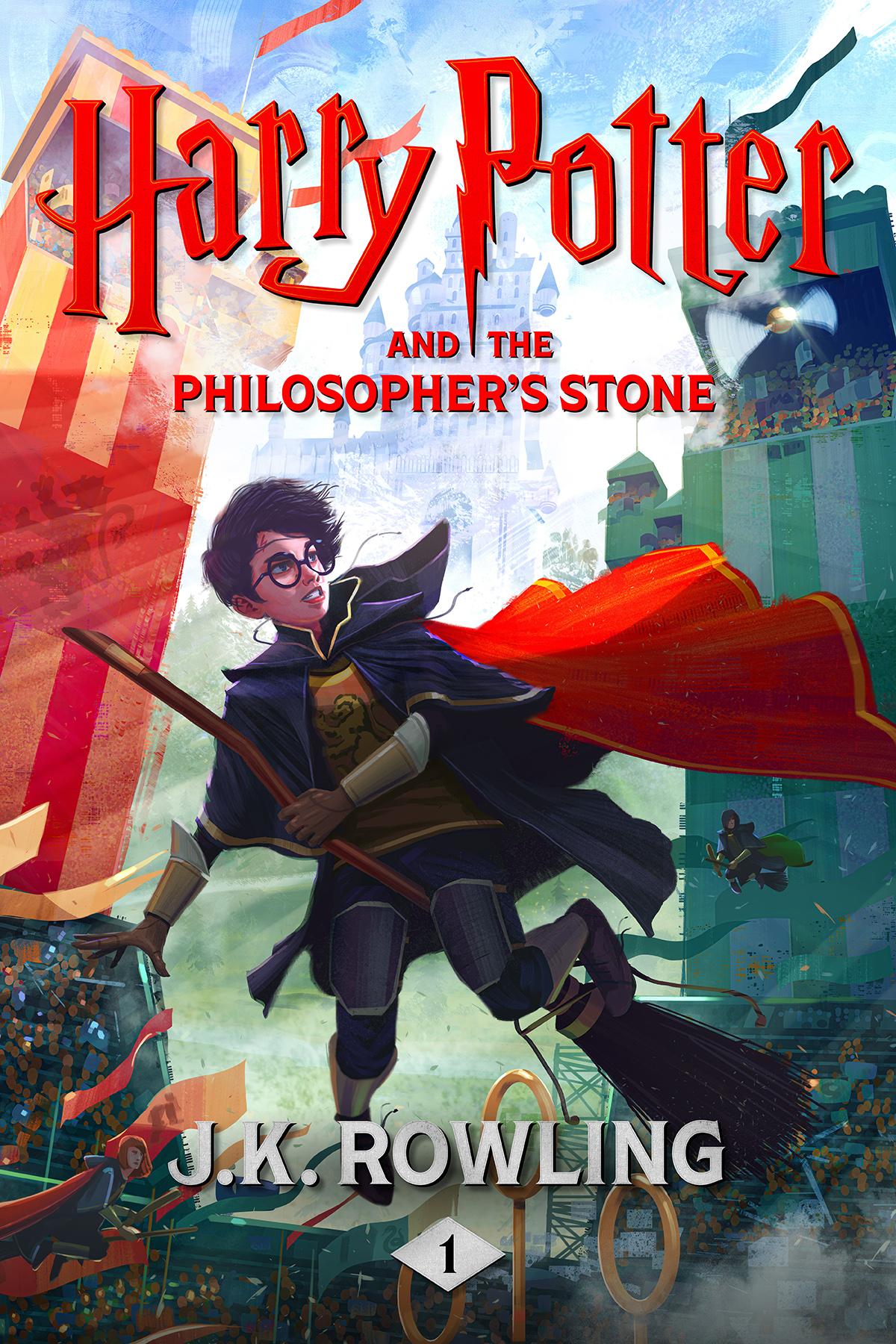
ebooknice.com
(Ebook) Harry Potter and the Deathly Hallows by J. K. Rowling
https://ebooknice.com/product/harry-potter-and-the-deathly-hallows-51195102
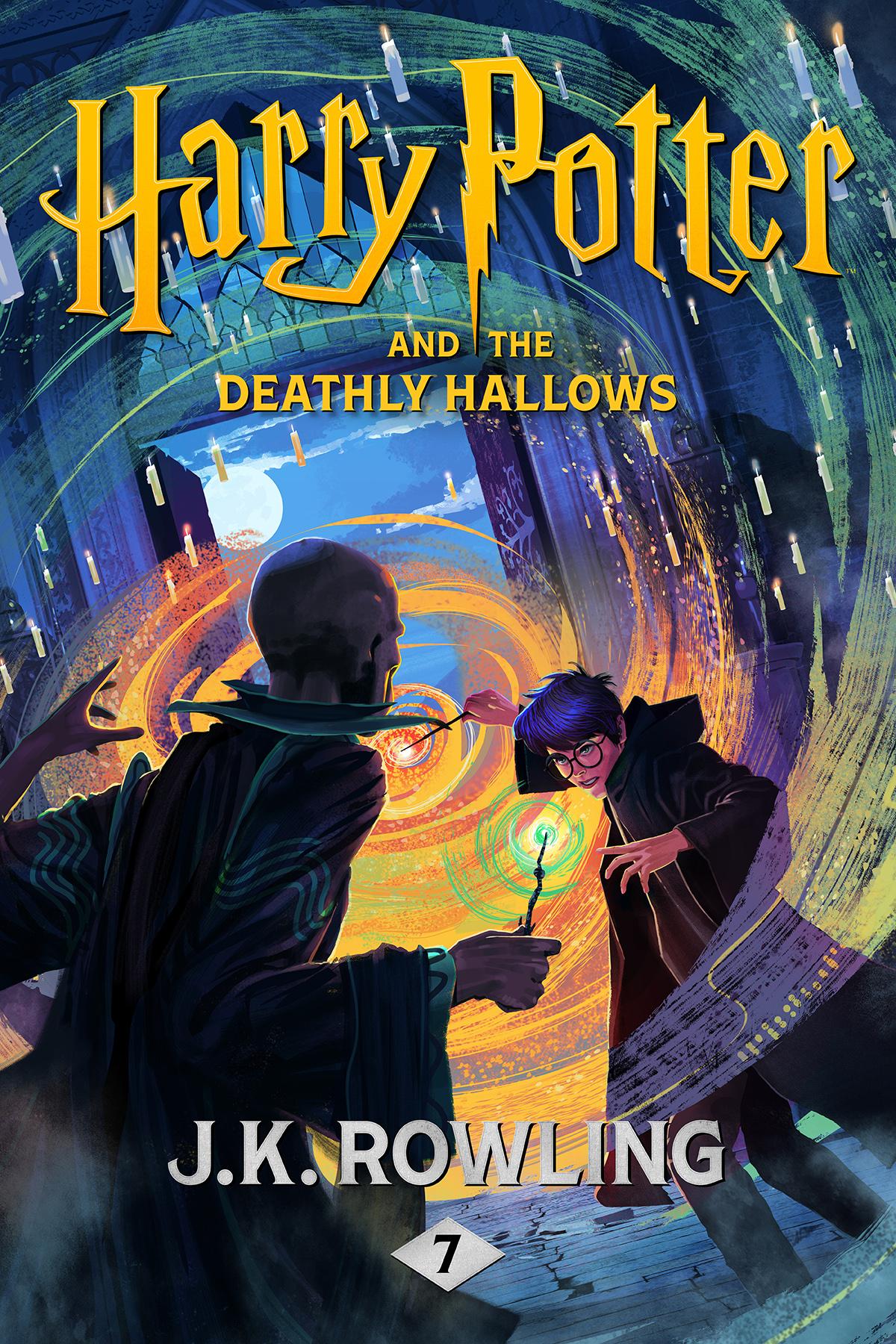
ebooknice.com


TO MACKENZIE, MYBEAUTIFULDAUGHTER, IDEDICATE
HERINK-AND-PAPERTWIN.
ONE TheOtherMinister
TWO Spinner’sEnd
THREE WillandWon’t
FOUR HoraceSlughorn
FIVE AnExcessofPhlegm
SIX Draco’sDetour
SEVEN TheSlugClub
EIGHT SnapeVictorious NINE TheHalf-BloodPrince
TEN
TheHouseofGaunt
ELEVEN
Hermione’sHelpingHand
TWELVE
SilverandOpals
THIRTEEN
TheSecretRiddle
FOURTEEN
FelixFelicis
FIFTEEN
TheUnbreakableVow
SIXTEEN
AVeryFrostyChristmas
SEVENTEEN
ASluggishMemory
EIGHTEEN
BirthdaySurprises
NINETEEN
ElfTails
TWENTY
LordVoldemort’sRequest
The Prime Minister’s pulse quickened at the very thought of these accusations, for they were neither fair nor true. How on earth was his government supposed to have stopped that bridge collapsing? It was outrageous for anybody to suggest that they were not spending enough on bridges. The bridge was fewer than ten years old, and the best experts were at a loss to explain why it had snapped cleanly in two, sending a dozen cars into the watery depths of the river below. And how dare anyone suggest that it was lack of policemen that had resulted in those two very nasty and well-publicized murders? Or that the government should have somehow foreseen the freak hurricane in the West Country that had caused so much damage to both people and property? And was it his fault that one of his Junior Ministers, Herbert Chorley, had chosen this week to act so peculiarly that he was now going to be spending a lot more time with his family?
“A grim mood has gripped the country,” the opponent had concluded, barely concealing his own broad grin.
And unfortunately, this was perfectly true. The Prime Minister felt it himself; people really did seem more miserable than usual. Even the weather was dismal; all this chilly mist in the middle of July. . . . It wasn’t right, it wasn’t normal. . . .
He turned over the second page of the memo, saw how much longer it went on, and gave it up as a bad job. Stretching his arms above his head he looked around his office mournfully. It was a handsome room, with a fine marble fireplace facing the long sash windows, firmly closed against the unseasonable chill. With a slight shiver, the Prime Minister got up and moved over to the window, looking out at the thin mist that was pressing itself against the glass. It was then, as he stood with his back to the room, that he heard a soft cough behind him.
He froze, nose to nose with his own scared-looking reflection in the dark glass. He knew that cough. He had heard it before. He turned very slowly to face the empty room.
“Hello?” he said, trying to sound braver than he felt.
in themselves, generally meant that he was about to hear some very bad news. Furthermore, Fudge was looking distinctly careworn. He was thinner, balder, and grayer, and his face had a crumpled look. The Prime Minister had seen that kind of look in politicians before, and it never boded well.
“How can I help you?” he said, shaking Fudge’s hand very briefly and gesturing toward the hardest of the chairs in front of the desk.
“Difficult to know where to begin,” muttered Fudge, pulling up the chair, sitting down, and placing his green bowler upon his knees. “What a week, what a week . . . ”
“Had a bad one too, have you?” asked the Prime Minister stiffly, hoping to convey by this that he had quite enough on his plate already without any extra helpings from Fudge.
“Yes, of course,” said Fudge, rubbing his eyes wearily and looking morosely at the Prime Minister. “I’ve been having the same week you have, Prime Minister. The Brockdale Bridge . . . the Bones and Vance murders . . . not to mention the ruckus in the West Country
“You — er — your — I mean to say, some of your people were — were involved in those — those things, were they?”
Fudge fixed the Prime Minister with a rather stern look. “Of course they were,” he said. “Surely you’ve realized what’s going on?”
“I . . .” hesitated the Prime Minister.
It was precisely this sort of behavior that made him dislike Fudge’s visits so much. He was, after all, the Prime Minister and did not appreciate being made to feel like an ignorant schoolboy. But of course, it had been like this from his very first meeting with Fudge on his very first evening as Prime Minister. He remembered it as though it were yesterday and knew it would haunt him until his dying day.
He had been standing alone in this very office, savoring the triumph that was his after so many years of dreaming and scheming, when he had heard a cough behind him, just like tonight, and turned to find that ugly little portrait talking to him, announcing that the Minister of Magic was about to arrive and introduce himself.
Naturally, he had thought that the long campaign and the strain of the election had caused him to go mad. He had been utterly terrified to find a portrait talking to him, though this had been nothing to how he felt when a self-proclaimed wizard had bounced out of the fireplace and shaken his hand. He had remained speechless throughout Fudge’s kindly explanation that there were witches and wizards still living in secret all over the world and his reassurances that he was not to bother his head about them as the Ministry of Magic took responsibility for the whole Wizarding community and prevented the non-magical population from getting wind of them. It was, said Fudge, a difficult job that encompassed everything from regulations on responsible use of broomsticks to keeping the dragon population under control (the Prime Minister remembered clutching the desk for support at this point). Fudge had then patted the shoulder of the still-dumbstruck Prime Minister in a fatherly sort of way.
“Not to worry,” he had said, “it’s odds-on you’ll never see me again. I’ll only bother you if there’s something really serious going on our end, something that’s likely to affect the Muggles — the nonmagical population, I should say. Otherwise, it’s live and let live. And I must say, you’re taking it a lot better than your predecessor. He tried to throw me out the window, thought I was a hoax planned by the opposition.”
At this, the Prime Minister had found his voice at last. “You’re — you’re nota hoax, then?”
It had been his last, desperate hope.
“No,” said Fudge gently. “No, I’m afraid I’m not. Look.”
And he had turned the Prime Minister’s teacup into a gerbil.
“But,” said the Prime Minister breathlessly, watching his teacup chewing on the corner of his next speech, “but why — why has nobody told me — ?”
“The Minister of Magic only reveals him- or herself to the Muggle Prime Minister of the day,” said Fudge, poking his wand back inside his jacket. “We find it the best way to maintain secrecy.”
“But then,” bleated the Prime Minister, “why hasn’t a former Prime Minister warned me — ?”
At this, Fudge had actually laughed.
“My dear Prime Minister, are youever going to tell anybody?”
Still chortling, Fudge had thrown some powder into the fireplace, stepped into the emerald flames, and vanished with a whooshing sound. The Prime Minister had stood there, quite motionless, and realized that he would never, as long as he lived, dare mention this encounter to a living soul, for who in the wide world would believe him?
The shock had taken a little while to wear off. For a time, he had tried to convince himself that Fudge had indeed been a hallucination brought on by lack of sleep during his grueling election campaign. In a vain attempt to rid himself of all reminders of this uncomfortable encounter, he had given the gerbil to his delighted niece and instructed his private secretary to take down the portrait of the ugly little man who had announced Fudge’s arrival. To the Prime Minister’s dismay, however, the portrait had proved impossible to remove. When several carpenters, a builder or two, an art historian, and the Chancellor of the Exchequer had all tried unsuccessfully to prise it from the wall, the Prime Minister had abandoned the attempt and simply resolved to hope that the thing remained motionless and silent for the rest of his term in office. Occasionally he could have sworn he saw out of the corner of his eye the occupant of the painting yawning, or else scratching his nose; even, once or twice, simply walking out of his frame and leaving nothing but a stretch of muddy-brown canvas behind. However, he had trained himself not to look at the picture very much, and always to tell himself firmly that his eyes were playing tricks on him when anything like this happened.
Then, three years ago, on a night very like tonight, the Prime Minister had been alone in his office when the portrait had once again announced the imminent arrival of Fudge, who had burst out of the fireplace, sopping wet and in a state of considerable panic. Before the Prime Minister could ask why he was dripping all over the
But they had seen each other again. Less than a year later a harassed-looking Fudge had appeared out of thin air in the cabinet room to inform the Prime Minister that there had been a spot of bother at the Kwidditch (or that was what it had sounded like) World Cup and that several Muggles had been “involved,” but that the Prime Minister was not to worry, the fact that You-Know-Who’s Mark had been seen again meant nothing; Fudge was sure it was an isolated incident, and the Muggle Liaison Office was dealing with all memory modifications as they spoke.
“Oh, and I almost forgot,” Fudge had added. “We’re importing three foreign dragons and a sphinx for the Triwizard Tournament, quite routine, but the Department for the Regulation and Control of Magical Creatures tells me that it’s down in the rule book that we have to notify you if we’re bringing highly dangerous creatures into the country.”
“I — what — dragons?” spluttered the Prime Minister.
“Yes, three,” said Fudge. “And a sphinx. Well, good day to you.”
The Prime Minister had hoped beyond hope that dragons and sphinxes would be the worst of it, but no. Less than two years later, Fudge had erupted out of the fire yet again, this time with the news that there had been a mass breakout from Azkaban.
“A massbreakout?” repeated the Prime Minister hoarsely.
“No need to worry, no need to worry!” shouted Fudge, already with one foot in the flames. “We’ll have them rounded up in no time — just thought you ought to know!”
And before the Prime Minister could shout, “Now, wait just one moment!” Fudge had vanished in a shower of green sparks.
Whatever the press and the opposition might say, the Prime Minister was not a foolish man. It had not escaped his notice that, despite Fudge’s assurances at their first meeting, they were now seeing rather a lot of each other, nor that Fudge was becoming more flustered with each visit. Little though he liked to think about the Minister of Magic (or, as he always called Fudge in his head, the Other Minister), the Prime Minister could not help but fear that the next time Fudge appeared it would be with graver news still. The
sight, therefore, of Fudge stepping out of the fire once more, looking disheveled and fretful and sternly surprised that the Prime Minister did not know exactly why he was there, was about the worst thing that had happened in the course of this extremely gloomy week.
“How should I know what’s going on in the — er — Wizarding community?” snapped the Prime Minister now. “I have a country to run and quite enough concerns at the moment without —”
“We have the same concerns,” Fudge interrupted. “The Brockdale Bridge didn’t wear out. That wasn’t really a hurricane. Those murders were not the work of Muggles. And Herbert Chorley’s family would be safer without him. We are currently making arrangements to have him transferred to St. Mungo’s Hospital for Magical Maladies and Injuries. The move should be effected tonight.”
“What do you . . . I’m afraid I . . . What?” blustered the Prime Minister.
Fudge took a great, deep breath and said, “Prime Minister, I am very sorry to have to tell you that he’s back. He-Who-Must-Not-BeNamed is back.”
“Back? When you say ‘back’ . . . he’s alive? I mean —”
The Prime Minister groped in his memory for the details of that horrible conversation of three years previously, when Fudge had told him about the wizard who was feared above all others, the wizard who had committed a thousand terrible crimes before his mysterious disappearance fifteen years earlier.
“Yes, alive,” said Fudge. “That is — I don’t know — is a man alive if he can’t be killed? I don’t really understand it, and Dumbledore won’t explain properly — but anyway, he’s certainly got a body and is walking and talking and killing, so I suppose, for the purposes of our discussion, yes, he’s alive.”
The Prime Minister did not know what to say to this, but a persistent habit of wishing to appear well-informed on any subject that came up made him cast around for any details he could remember of their previous conversations.
“Is Serious Black with — er — He-Who-Must-Not-Be-Named?”
Fudge cleared his throat and, with an effort, it seemed, stopped spinning his bowler hat.
“But that murder was in the newspapers,” said the Prime Minister, momentarily diverted from his anger. “Our newspapers. Amelia Bones . . . it just said she was a middle-aged woman who lived alone. It was a — a nasty killing, wasn’t it? It’s had rather a lot of publicity. The police are baffled, you see.”
Fudge sighed. “Well, of course they are,” he said. “Killed in a room that was locked from the inside, wasn’t she? We, on the other hand, know exactly who did it, not that that gets us any further toward catching him. And then there was Emmeline Vance, maybe you didn’t hear about that one —”
“Oh yes I did!” said the Prime Minister. “It happened just around the corner from here, as a matter of fact. The papers had a field day with it, ‘breakdown of law and order in the Prime Minister’s backyard —’”
“And as if all that wasn’t enough,” said Fudge, barely listening to the Prime Minister, “we’ve got dementors swarming all over the place, attacking people left, right, and center. . . . ”
Once upon a happier time this sentence would have been unintelligible to the Prime Minister, but he was wiser now.
“I thought dementors guard the prisoners in Azkaban,” he said cautiously.
“They did,” said Fudge wearily. “But not anymore. They’ve deserted the prison and joined He-Who-Must-Not-Be-Named. I won’t pretend that wasn’t a blow.”
“But,” said the Prime Minister, with a sense of dawning horror, “didn’t you tell me they’re the creatures that drain hope and happiness out of people?”
“That’s right. And they’re breeding. That’s what’s causing all this mist.”
The Prime Minister sank, weak-kneed, into the nearest chair. The idea of invisible creatures swooping through the towns and countryside, spreading despair and hopelessness in his voters, made him feel quite faint.
“Now, wait a moment!” declared the Prime Minister. “You can’t just put your people into my office, I decide who works for me —”
“I thought you were happy with Shacklebolt?” said Scrimgeour coldly.
“I am — that’s to say, I was —”
“Then there’s no problem, is there?” said Scrimgeour.
“I . . . well, as long as Shacklebolt’s work continues to be . . . er . . . excellent,” said the Prime Minister lamely, but Scrimgeour barely seemed to hear him.
“Now, about Herbert Chorley, your Junior Minister,” he continued. “The one who has been entertaining the public by impersonating a duck.”
“What about him?” asked the Prime Minister.
“He has clearly reacted to a poorly performed Imperius Curse,” said Scrimgeour. “It’s addled his brains, but he could still be dangerous.”
“He’s only quacking!” said the Prime Minister weakly. “Surely a bit of a rest . . . Maybe go easy on the drink . . . ”
“A team of Healers from St. Mungo’s Hospital for Magical Maladies and Injuries are examining him as we speak. So far he has attempted to strangle three of them,” said Scrimgeour. “I think it best that we remove him from Muggle society for a while.”
“I . . . well . . . He’ll be all right, won’t he?” said the Prime Minister anxiously.
Scrimgeour merely shrugged, already moving back toward the fireplace.
“Well, that’s really all I had to say. I will keep you posted of developments, Prime Minister — or, at least, I shall probably be too busy to come personally, in which case I shall send Fudge here. He has consented to stay on in an advisory capacity.”
Fudge attempted to smile, but was unsuccessful; he merely looked as though he had a toothache. Scrimgeour was already rummaging in his pocket for the mysterious powder that turned the fire green. The Prime Minister gazed hopelessly at the pair of them for a
CHAPTER TWO
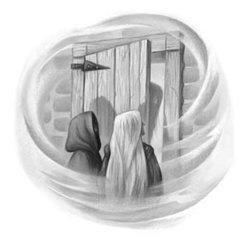
SPINNER’SEND
Many miles away the chilly mist that had pressed against the Prime Minister’s windows drifted over a dirty river that wound between overgrown, rubbish-strewn banks. An immense chimney, relic of a disused mill, reared up, shadowy and ominous. There was no sound apart from the whisper of the black water and no sign of life apart from a scrawny fox that had slunk down the bank to nose hopefully at some old fish-and-chip wrappings in the tall grass.
But then, with a very faint pop, a slim, hooded figure appeared out of thin air on the edge of the river. The fox froze, wary eyes fixed upon this strange new phenomenon. The figure seemed to take its bearings for a few moments, then set off with light, quick strides, its long cloak rustling over the grass.
With a second and louder pop, another hooded figure materialized.
“Wait!”
The harsh cry startled the fox, now crouching almost flat in the undergrowth. It leapt from its hiding place and up the bank. There
“Severus,” she said in a strained whisper. “May I speak to you? It’s urgent.”
“But of course.”
He stood back to allow her to pass him into the house. Her stillhooded sister followed without invitation.
“Snape,” she said curtly as she passed him.
“Bellatrix,” he replied, his thin mouth curling into a slightly mocking smile as he closed the door with a snap behind them.
They had stepped directly into a tiny sitting room, which had the feeling of a dark, padded cell. The walls were completely covered in books, most of them bound in old black or brown leather; a threadbare sofa, an old armchair, and a rickety table stood grouped together in a pool of dim light cast by a candle-filled lamp hung from the ceiling. The place had an air of neglect, as though it was not usually inhabited.
Snape gestured Narcissa to the sofa. She threw off her cloak, cast it aside, and sat down, staring at her white and trembling hands clasped in her lap. Bellatrix lowered her hood more slowly. Dark as her sister was fair, with heavily lidded eyes and a strong jaw, she did not take her gaze from Snape as she moved to stand behind Narcissa.
“So, what can I do for you?” Snape asked, settling himself in the armchair opposite the two sisters.
“We . . . we are alone, aren’t we?” Narcissa asked quietly.
“Yes, of course. Well, Wormtail’s here, but we’re not counting vermin, are we?”
He pointed his wand at the wall of books behind him and with a bang, a hidden door flew open, revealing a narrow staircase upon which a small man stood frozen.
“As you have clearly realized, Wormtail, we have guests,” said Snape lazily.
The man crept, hunchbacked, down the last few steps and moved into the room. He had small, watery eyes, a pointed nose, and wore an unpleasant simper. His left hand was caressing his right, which looked as though it was encased in a bright silver glove.
I answer you, I say, let me ask a question in turn. Do you really think that the Dark Lord has not asked me each and every one of those questions? And do you really think that, had I not been able to give satisfactory answers, I would be sitting here talking to you?”
She hesitated.
“I know he believes you, but . . . ”
“You think he is mistaken? Or that I have somehow hoodwinked him? Fooled the Dark Lord, the greatest wizard, the most accomplished Legilimens the world has ever seen?”
Bellatrix said nothing, but looked, for the first time, a little discomfited. Snape did not press the point. He picked up his drink again, sipped it, and continued, “You ask where I was when the Dark Lord fell. I was where he had ordered me to be, at Hogwarts School of Witchcraft and Wizardry, because he wished me to spy upon Albus Dumbledore. You know, I presume, that it was on the Dark Lord’s orders that I took up the post?”
She nodded almost imperceptibly and then opened her mouth, but Snape forestalled her.
“You ask why I did not attempt to find him when he vanished. For the same reason that Avery, Yaxley, the Carrows, Greyback, Lucius” — he inclined his head slightly to Narcissa — “and many others did not attempt to find him. I believed him finished. I am not proud of it, I was wrong, but there it is. . . . If he had not forgiven we who lost faith at that time, he would have very few followers left.”
“He’d have me!” said Bellatrix passionately. “I, who spent many years in Azkaban for him!”
“Yes, indeed, most admirable,” said Snape in a bored voice. “Of course, you weren’t a lot of use to him in prison, but the gesture was undoubtedly fine —”
“Gesture!” she shrieked; in her fury she looked slightly mad. “While I endured the dementors, you remained at Hogwarts, comfortably playing Dumbledore’s pet!”
“Not quite,” said Snape calmly. “He wouldn’t give me the Defense Against the Dark Arts job, you know. Seemed to think it might, ah, bring about a relapse . . . tempt me into my old ways.”
“This was your sacrifice for the Dark Lord, not to teach your favorite subject?” she jeered. “Why did you stay there all that time, Snape? Still spying on Dumbledore for a master you believed dead?”
“Hardly,” said Snape, “although the Dark Lord is pleased that I never deserted my post: I had sixteen years of information on Dumbledore to give him when he returned, a rather more useful welcome-back present than endless reminiscences of how unpleasant Azkaban is. . . . ”
“But you stayed —”
“Yes, Bellatrix, I stayed,” said Snape, betraying a hint of impatience for the first time. “I had a comfortable job that I preferred to a stint in Azkaban. They were rounding up the Death Eaters, you know. Dumbledore’s protection kept me out of jail; it was most convenient and I used it. I repeat: The Dark Lord does not complain that I stayed, so I do not see why you do.
“I think you next wanted to know,” he pressed on, a little more loudly, for Bellatrix showed every sign of interrupting, “why I stood between the Dark Lord and the Sorcerer’s Stone. That is easily answered. He did not know whether he could trust me. He thought, like you, that I had turned from faithful Death Eater to Dumbledore’s stooge. He was in a pitiable condition, very weak, sharing the body of a mediocre wizard. He did not dare reveal himself to a former ally if that ally might turn him over to Dumbledore or the Ministry. I deeply regret that he did not trust me. He would have returned to power three years sooner. As it was, I saw only greedy and unworthy Quirrell attempting to steal the stone and, I admit, I did all I could to thwart him.”
Bellatrix’s mouth twisted as though she had taken an unpleasant dose of medicine.
“But you didn’t return when he came back, you didn’t fly back to him at once when you felt the Dark Mark burn —”
“Correct. I returned two hours later. I returned on Dumbledore’s orders.”
“On Dumbledore’s — ?” she began, in tones of outrage.
